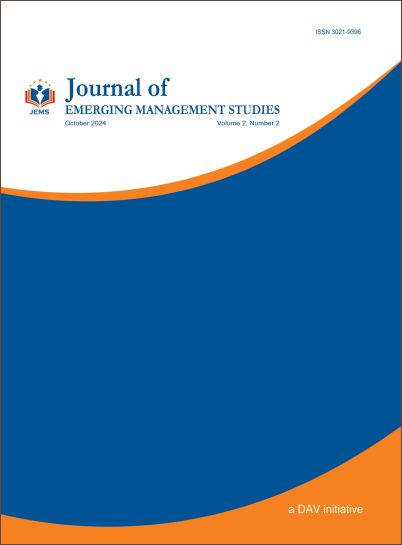The Impact of Human Resource Management Practices and Employee Job Satisfaction on Organizational Commitment in IT Companies
DOI:
https://doi.org/10.3126/jems.v2i2.74504Keywords:
Employee job satisfaction, Human resource management, IT companies, Organizational commitmentAbstract
Purpose – The purpose of this paper was to examine the role of human resource management practices such as recruitment and selection, training and development, performance management, reward and recognition, compensation and benefit, and employee job satisfaction on organizational commitment, with a focus on employees of the IT companies in Kathmandu Valley of Nepal.
Design/methodology/approach – The research paper used a quantitative approach and descriptive and causal research design to achieve the research objectives. Data collection was based on purposive sampling technique. The response was taken from 310 respondents through online survey. The variables under study were measured in a five-point Likert scale. Data were further evaluated using SPSS software version 26.0 and AMOS graphics.
Findings – The results illustrate that rewards and recognition, compensation & benefits, and performance management positively affect organizational commitment, while recruitment and selection have a smaller coefficient but has significant. Training and development does not significantly influence OC. Mediation analysis shows that job satisfaction partially mediates the effect of recruitment and selection and performance management on OC, while compensation and benefits effect on OC is fully mediated by job satisfaction.
Conclusion – The paper identified that the rewards and recognition and compensation and benefits are the strongest drivers of organizational commitment in IT companies in Kathmandu Valley. Performance management also plays a key role in enhancing OC, while recruitment and selection has a smaller, though still important, impact. Training and development did not show a significant direct effect on OC. The study further advocates that job satisfaction acts as an important mediator, strengthening the impact of HRM practices on OC, particularly in the case of compensation and benefits.
Implications – This paper advocates the role of HRM practices such as rewards, compensation, and performance management in fostering employee commitment through social exchange theory. It shows that job satisfaction plays a key role in mediating the impact of these practices on organizational commitment. Managers, especially in Nepal's competitive IT sector, can focus on fair reward systems, equitable compensation, and strong performance management which can improve job satisfaction and commitment.
Originality/value – This research brings originality to the field by examining the interrelationship between human resource management practices, employee job satisfaction and organizational commitment specifically within the IT companies of Kathmandu Valley.




